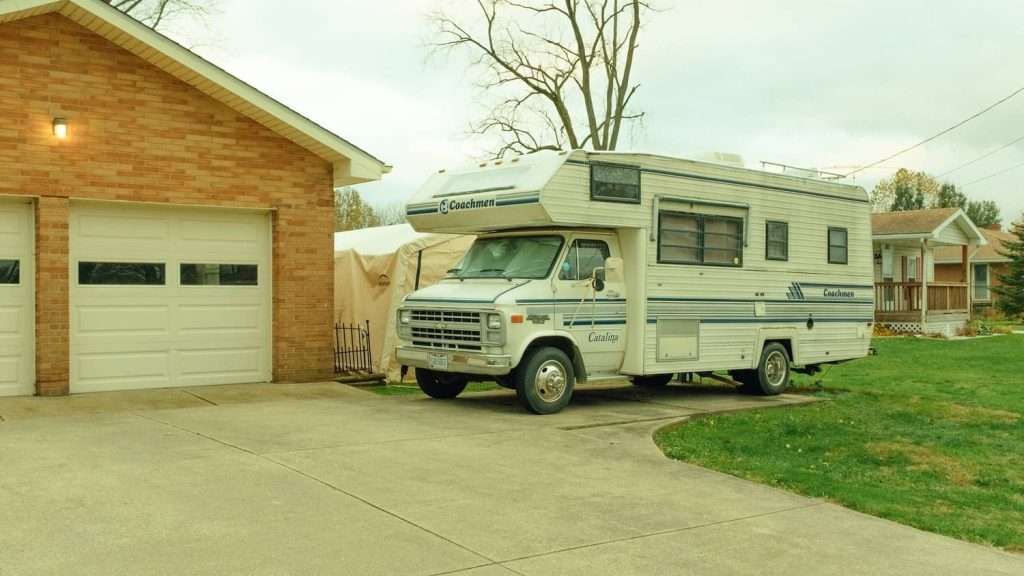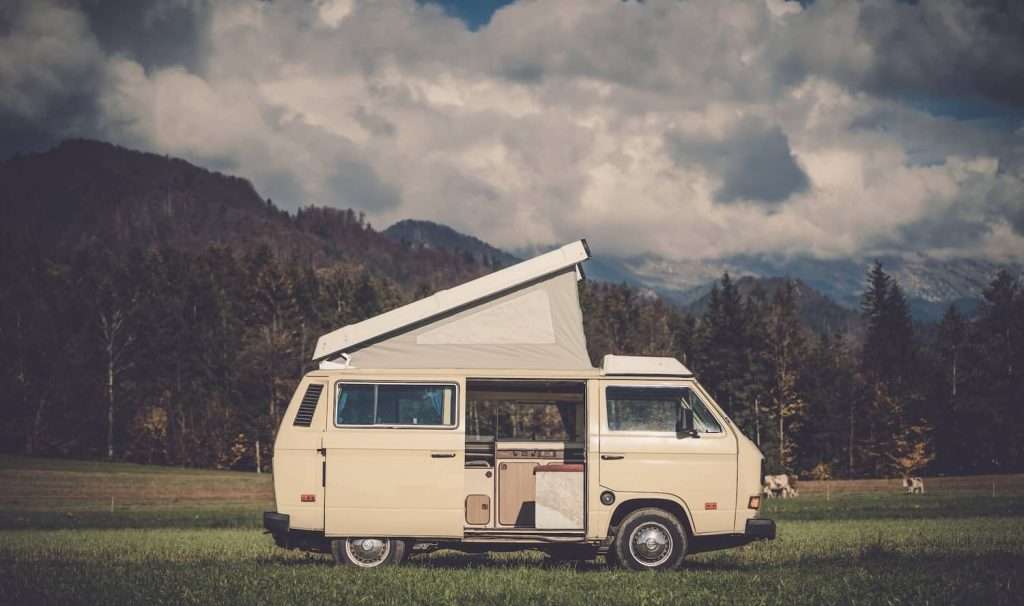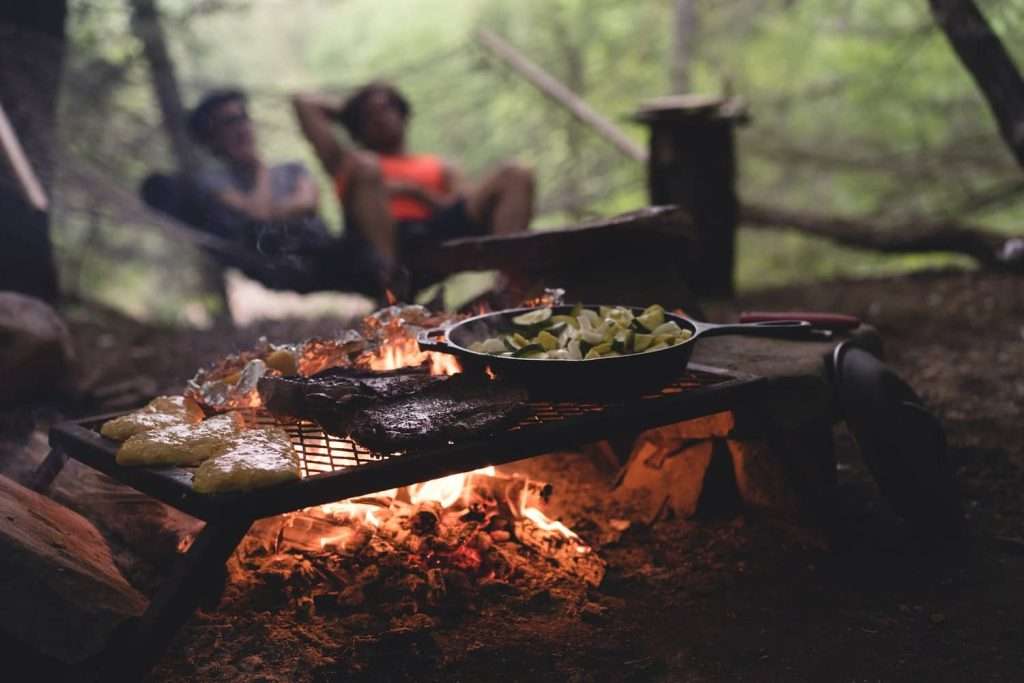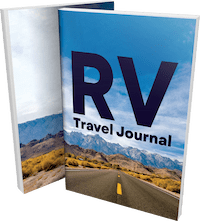
RV Basics For Beginners: 11 Best Tips For Your Upcoming Trip
From understanding your RV’s load limits to knowing which tools you should have on hand — here are my RV basics for beginners!
When I was a newbie to the world of RVs, I vividly remember the mix of excitement and uncertainty that accompanied my first venture into the realm of RV travel. From the moment I laid eyes on that sleek, fully-equipped motorhome, I knew I was about to embark on an adventure like no other. However, I quickly realized that delving into the world of RVing required a solid foundation of knowledge and skills.
That’s why I’m here to share my essential RV basics for beginners — arming you with the confidence to embrace the open road and make unforgettable memories along the way. Whether you’re dreaming of cross-country exploration or planning a weekend getaway to reconnect with nature, this article will be your trusted companion in navigating the exciting world of RV travel.
So, let’s buckle up, dive in, and uncover these RV basics for beginners that will transform you from a rookie to a seasoned RV enthusiast!
Take A Test Drive To Get Comfortable
When it comes to RV travel, one of my first RV basics for beginners is always to get behind the wheel and take a test drive. RVs are not your average vehicles; they are larger, heavier, and handle differently than the cars most of us are accustomed to driving. So, before embarking on your grand adventure, it’s crucial to familiarize yourself with your RV’s unique quirks and characteristics.
Taking a test drive is crucial for RV beginners. It builds confidence in maneuvering your new massive vehicle and helps with learning how to turn, park, and navigate tight spaces. It also ensures the safety and comfort of passengers — especially kids and pets — by familiarizing them with RV safety and addressing any concerns.
During the test drive, focus on handling, acceleration, braking, and blind spots. Practice merging and changing lanes. Explore the RV’s features, controls, and functionalities to enhance convenience and preparedness on the road. Remember, an RV is not just a vehicle but a home on wheels, so understanding its workings provides peace of mind.
By taking a test drive to get comfortable with your RV, you’re setting yourself up for a successful and enjoyable adventure. So, grab the wheel, buckle up, and let the journey begin!
Pack Spare Parts And Tools
As a beginner venturing into the world of RV travel, I quickly learned the importance of being prepared for the unexpected. While I didn’t want to transform my RV into a fully stocked workshop, I soon realized that having a well-chosen selection of spare parts and essential tools was a game-changer. This is why packing spare parts and essential tools is a vital part of my list of RV basics for beginners.
When you hit the road in your RV, you become the captain of your very own mobile domain. As a beginner, it’s important to be prepared for any unexpected situations that may arise along the way.
A well-curated selection of essential spare parts and tools is crucial for RV beginners. Carrying specific spare parts like fuses, light bulbs, belts, hoses, and filters can prevent minor issues from becoming major inconveniences. A basic toolkit with screwdrivers, pliers, an adjustable wrench, and a socket set comes in handy for various tasks. Safety equipment such as a fire extinguisher, first aid kit, and tire pressure gauge should also be on board. Being prepared empowers beginners to handle repairs confidently, saving time and money.
Run Through Your RV Camping Process In Your Driveway
As a first-time RV owner, I quickly learned that jumping straight into a camping trip without any preliminary steps was a mistake waiting to happen. So, I decided to take the advice of seasoned campers and try out everything in the comfort of my own driveway. Let me tell you; it made a world of difference when I finally ventured out for the real thing.
Setting up my RV in the driveway was a “dress rehearsal” before the main event. The first thing I did was familiarize myself with the basics: understanding the water, sewer, and electrical hookups. I took time to study my RV manual and then physically connected and disconnected everything several times until I felt comfortable with the process.
Next, I practiced leveling the RV, which is crucial for your RV’s refrigeration system and for your personal comfort. I learned how to use the leveling jacks, the importance of a bubble level and got a sense of what “level” actually feels like inside the RV.
I then tried to test the slide-outs, ensuring they worked properly and understanding the required space.
Lastly, I spent a night in the RV as it was parked right in my driveway. I cooked dinner using the RV appliances, checked the functionality of the air conditioning and heating systems, and tested out the comfort of the bed. It was an enlightening experience, and it helped me identify a few minor issues that needed attention before heading out on the road.
Don’t Over Pack Your RV
As a beginner RVer, one of the earliest lessons I learned was the art of minimalism: Don’t overpack your RV.
When RVing, you must understand that space is a valuable commodity. You’re not just packing for a road trip; you’re essentially packing a compact mobile home. For instance, on my first trip with my partner, we discovered that we only needed 2-4 plates. We found that washing our dishes after every meal wasn’t as much of a chore as we had anticipated. Plus, it helped us to keep our living space neat and tidy.
We applied this same principle across all our packing needs. Be it clothes, utensils, pots and pans, or other essentials. We learned to distinguish between ‘must-haves’ and ‘nice-to-haves.’ It turned out that we really didn’t need a 20-piece cutlery set or a pot for every conceivable meal.
In the end, paring down to the essentials saved us valuable space and reduced the weight of our RV, improving gas mileage and maneuverability.
I’d recommend the same to any new RVer – keep it simple, light, and only bring what you need. You’ll find that you can enjoy the trip far more when you’re not constantly trying to find a place for everything.
Don’t Fill Your RV With Water Before You Travel
When I began my RV journey, I assumed that filling my water tanks to the brim before heading off would be the logical step. After all, having access to water is vital, right? I soon discovered, however, that this wasn’t the best strategy. Expert RVers know that water is heavy, and unnecessary weight can negatively impact your RV’s fuel efficiency.
Water weighs roughly 8.3 pounds per gallon, so a 50-gallon tank filled to the top will add about 415 pounds to your RV. This weight could be better utilized for other essentials or simply left empty to lighten your load. This added weight affects fuel efficiency and makes your RV harder to drive and maneuver, especially for beginners.
If your camping destination has water available, carrying a full tank on your journey is unnecessary. Instead, I learned to travel with just enough water for any “just in case” situations that may arise on the road. This strategy provides a happy medium between being prepared and traveling light.
Over time, I learned to appreciate the value of efficiency and smart preparation in RVing. It’s all about understanding what’s necessary and what’s not. Traveling with a full water tank? More often than not, it’s just not necessary. As a beginner, remember that smart RVing is all about reducing weight and maximizing enjoyment.
Prepare For Different Types Of Electrical Hookups
For me, this was one of the biggest RV basics for beginners that I failed to grasp in short order. At first, I naively assumed there would be a standard of type of electrical hookups at all campgrounds and RV parks. However, I quickly discovered that was not the case.
Generally, RV electrical systems operate on 30 or 50-amp services, and not all parks cater to both. This disparity became clear when I rolled into my first campground, ready to hook up, and found the electrical receptacle didn’t match my RV’s plug. Thankfully, I had an adapter handy, but it was a wake-up call about the importance of preparation.
Now, before I set off on any trip, I make a point to call ahead when making reservations at campgrounds or RV parks. I inquire about the type of electrical hookup they offer, whether it’s a 30-amp or 50-amp service. Having this information beforehand ensures I have the right equipment, including any necessary adapters, to safely connect my RV to the park’s electricity source.
Understanding and preparing for different types of electrical hookups will save you a lot of potential headaches. It’s part of the RV lifestyle, and believe me, with a little bit of preparation, this is one of my RV basics for beginners that will easily become second nature. In the world of RVing, it’s always better to be over-prepared than under. This simple phone call ahead of time is a small step that makes a significant difference.
Keep Your RV Load Limits In Mind
As a first-time RV owner, one of the most fundamental RV basics for beginners that you need to keep in mind is understanding and respecting your vehicle’s load limits. I must confess I didn’t initially give it the attention it deserved. It wasn’t until a fellow RVer pointed out the importance of adhering to these weight guidelines that I started taking them seriously.
Every RV has published load limits, which are calculated considering passengers, cargo, and even the weight of water and fuel. Ignoring these weight restrictions can significantly strain your RV’s frame, tires, and engine, leading to potential damage or accidents. Moreover, it can also void warranties and insurance coverage in some instances.
So, I made it a point to familiarize myself with my RV’s load limits, found in the vehicle’s manual or on a sticker inside a cabinet or closet. I also took steps to monitor the weight of my vehicle. Believe it or not, you can easily weigh your RV at a truck scale at a truck stop. The process was simple, and it provided peace of mind knowing I wasn’t putting unnecessary strain on my RV.
Admittedly, it took some time to get the hang of packing efficiently while keeping the weight limits in mind. But over time, it became a natural part of my pre-travel checklist. My advice to other RV beginners is this: never underestimate the importance of respecting your vehicle’s load limits. Safety and longevity should always be your priorities.
Have Plans For Your Tank Dumps
Ah, tank dumps, the not-so-glamorous side of RVing. When I first bought my RV, I had many dreams about hitting the open road, but dealing with waste management wasn’t one of them. That said, it’s an essential part of RV life, and having a solid plan for tank dumps is crucial.
One of the first things to ascertain when selecting a campsite is whether it has full hookups. This includes water, electricity, and (most importantly for this discussion) sewer. A full hookup means you can conveniently connect your RV’s waste system directly to the campsite’s sewage system.
However, not all campsites have this feature. In those cases, you’ll need to fill your fresh water tanks and empty your holding tanks at a remote dump station. Let me tell you, the first time I had to do this was an experience, but it quickly became routine with the right equipment.
Yes, equipment is key. A quality sewer hose is a must, as is a clear elbow connector to monitor when your tanks are clean.
Here’s another one of my essential RV basics for beginners that you should never forget, don’t forget those dump gloves! They’re a necessity unless you want to get up close and personal with your waste tanks.
I learned that having a plan and the right equipment for tank dumps made this essential task a breeze. So don’t shy away from it, but do plan ahead.
Reserve Your RV Sites And Camping Spots
There’s nothing quite like the thrill of deciding to head out on a spontaneous RV trip. But as a first-time RVer, I quickly discovered that spontaneity sometimes comes second to good old-fashioned planning, especially when it comes to securing the best camping spots.
RVing has gained in popularity over the years, and many campgrounds and RV parks book out months in advance. There’s nothing more disappointing than setting your heart on a beautiful lakefront spot only to find it’s been reserved by quicker-fingered RVers.
So, I learned to plan ahead. Making campground reservations well in advance of my trip became a priority. I would ensure to get all the details when making the reservation, like the availability of full hookups, the type of electrical hookup provided, and any specific site restrictions.
Even during off-peak times, when campgrounds are less crowded, I still make reservations in advance. It saves the stress of finding last-minute accommodation and gives me peace of mind knowing exactly where I’m heading. Being an RVer is about embracing the open road and the freedom it offers, but a little forward planning can make all the difference.
This is one of the most straightforward RV basics for beginners — the early bird catches the worm, or in this case, the perfect camping spot! Plan ahead, make those reservations, and then sit back and enjoy the anticipation of your upcoming adventure.
Know The Operating Hours Of The Campground
As a beginner RVer, I was eager to hit the road and explore, often disregarding the smaller details. One thing I quickly realized was that it’s crucial to familiarize yourself with the operating hours of your chosen campground.
Knowing the specifics of your campground is one of the core RV basics for beginners because each one operates differently. While some are open 24/7, others enforce strict “quiet hours” and may even lock their gates during those hours each night. My first encounter with this was an unexpected surprise when I arrived at a campground late in the evening, only to find the gates closed for the night. Let’s just say it was a long, uncomfortable night in a nearby parking lot!
Since that incident, I’ve made it a habit to know the exact operating hours of any campground I plan to visit. I include this in my trip planning and adjust my arrival timing accordingly. This not only helps me avoid inconvenient situations but also helps in respecting the rules and fellow campers at the site.
So, my advice to fellow beginners is this: take a few minutes during your trip planning phase to find out the operating hours of your chosen campground. Knowing when you can arrive, when quiet hours begin, and whether the gates lock at night can save you from unexpected situations.
Prepare For Nighttime Setup
Even though this is technically one of my RV basics for beginners, don’t worry, I know many RV experts that have difficulty with this as well. Setting up an RV is an art in itself, and it gets even trickier when you have to do it in the dark. On one of my earliest trips, I found myself rolling into a campsite well past sunset. The challenge of setting up the RV in near-total darkness was an experience that I won’t easily forget.
Now, I make it a point to plan my arrival times to ensure I’m setting up in daylight. The visibility makes the process smoother and less prone to errors or missteps. Trust me, connecting your water, electricity, and sewer in the light of day is far more straightforward than fumbling in the dark.
However, as we all know, not everything goes according to plan when you’re on the road. Delays happen, and sometimes you’ll find yourself needing to set up your RV after sunset. For such instances, I’ve learned to be prepared.
After my first nighttime set up debacle, I invested in quality camping lights that could illuminate my setup area when needed. They’ve been invaluable on the few occasions when I’ve had to set up in the dark. So, while it’s not ideal to set up after dark, with the right equipment it’s certainly doable.
FAQs About RV Basics For Beginners
What is the 3-3-3 rule for RV living?
The 3-3-3 rule for RV living is a guideline that many RVers follow to reduce travel fatigue and enhance their overall travel experience. It suggests that when traveling, you should drive no more than 300 miles a day, aim to arrive at your destination by 3 pm, and stay at your destination for a minimum of 3 nights.
This rule complements the RV basics for beginners that we talked about above because it ensures that you have plenty of time to rest, explore, and enjoy your destination without feeling burned out. Additionally, arriving by 3 pm gives you ample daylight to set up your RV and settle in.
Where should my first RV trip be?
Choosing the location of your first RV trip largely depends on your personal interests and comfort level with driving an RV. If you’re a novice RVer, starting with a destination closer to home might be a good idea. This will allow you to get accustomed to driving and setting up the RV without the stress of long-distance travel.
Consider choosing an RV park or a campground that offers full amenities and is known for its friendly and helpful community. Such locations often have staff or fellow campers who can assist you with any questions or problems during your initial RV trip.
You’re Ready To Hit The Road With My RV Basics For Beginners
Understanding these RV basics for beginners is the first step towards a fulfilling RV lifestyle. The freedom and joy of exploring the open road in your home on wheels are unlike any other experience. Yet, as with any new endeavor, it requires a bit of learning and adjustment. Remember, it’s okay to make mistakes and ask questions. With every trip, you’ll become more familiar and comfortable with your RV.
So keep these tips in mind, embrace the journey, and welcome to the wonderful world of RVing!











